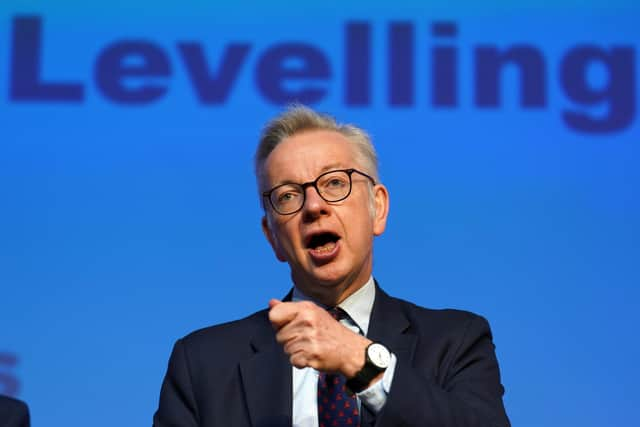Listening to lived experience is important to improving people’s lives - Luke Tryl
That’s not because the public doesn’t respect expertise - our polling during the pandemic found that Britons were more likely to trust scientists and public health experts than their counterparts in Europe. Instead, people are frustrated with an approach to politics that judges success on numbers alone - particularly GDP - ignoring the struggles of those not sharing in that success.
That frustration erupted during the Brexit vote. The public was told that EU membership had been an engine of growth and the UK had benefited from free movement. But many people in Yorkshire voted to leave because they hadn’t felt those benefits and instead saw the pressure that free movement placed on services and felt their communities had been left behind.
Advertisement
Hide AdAdvertisement
Hide AdAfter that vote, it seemed some politicians had heard the message. Levelling Up focused on spreading opportunity across the country, rather than relying on growth in London and the South-East. The Treasury’s value for money assessments were changed to focus on areas that had traditionally been ‘left behind’.The Government set itself new missions focused as much on well-being, pride of place and connectivity as traditional economic metrics.


But a ‘Dashboard’ premiership in No.10 risks slipping back to politics by statistics. The PM’s flagship five pledges are a return to judging progress by numbers - with a focus on headline figures rather than what success might feel like in communities across Yorkshire.
In the last week, we’ve seen the limits of that approach. If progress towards meeting the PM’s pledges is the yardstick for success, then the IMF upgrading Britain’s growth prospects and inflation falling should have been cause for national cheer - instead, public optimism remains in short supply.
In polling for the New Britain project, we asked people to describe Britain in a word - the most popular answer was ‘broken’, followed by ‘mess’, and ‘struggling’. In separate polling, a third of the public told us they thought the cost of living crisis would never end. While in focus groups in places like Wakefield and Rother Valley, people despair that their days have become ‘work to live and live to work’. Bleak as the public’s prognosis is, it’s understandable. If the headline rate of inflation comes down, but food prices are rising at 19 per cent that still means many families face an impossible squeeze.
Advertisement
Hide AdAdvertisement
Hide AdIn short, the danger is that even if the PM's pledges are met, they become a case of hitting the target but missing the point.


The Prime Minister is not the only one falling into this trap. Keir Starmer’s ‘Missions’ for a Labour Government are high on ambition but lack tangible pledges to improve people’s day to day.
Politics and policy should be data-informed, but Britain isn’t a management consultancy. Projections from economists and measures from statisticians are important - but they’re no substitute for going out and listening to what people have to say about their day-to-day lives and what they want those in charge to do to improve them.
Luke Tryl is UK director at More in Common.